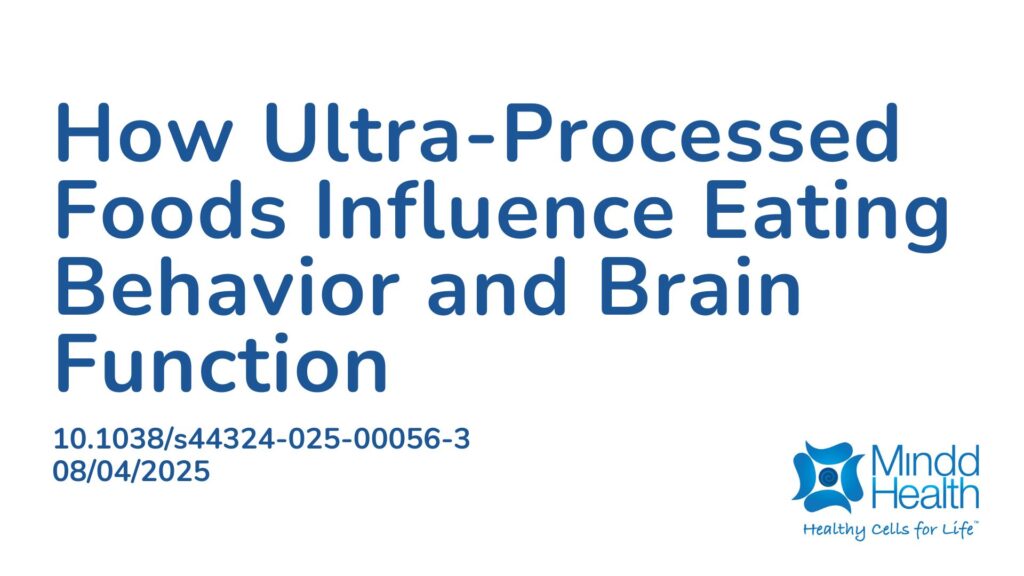Summary:
Modern diets increasingly include ultra-processed foods (UPFs), which can make up over half of daily calorie intake. These foods are linked to higher rates of chronic conditions like diabetes, cardiovascular disease, stroke, and dementia. Even small reductions in UPF intake, replaced with minimally processed foods (MPFs), are associated with lower risk of cognitive decline. Research shows that UPFs lead to overeating, weight gain, inflammation and hypertension, which are known to impact brain health. However, UPFs may also harm the brain through non-obesity pathways, such as additives that cause systemic inflammation. This study used UK Biobank data to examine the impact of UPFs on brain structure. High UPF intake was linked to worse metabolic profiles, partly due to inflammation and high body weight. The study also showed that UPFs could influence brain regions responsible for reward and emotional responses to food. For example, changes in the brain’s reward system may encourage people to keep consuming UPFs, creating a cycle of overconsumption and worsening health. Importantly, these brain and metabolic changes were linked to UPF intake even after accounting for diet quality, calories, physical activity, and lifestyle factors. This suggests that it’s not just about nutrients like sugar or fat, but the level of food processing itself may play a role. In summary, this research supports the idea that UPFs not only harm physical health but may also change the brain in ways that make it harder to resist eating more UPFs.
Abstract:
Consumption of ultra-processed foods (UPFs) increases overall caloric intake and is associated with obesity, cardiovascular disease, and brain pathology. There is scant evidence as to why UPF consumption leads to increased caloric intake and whether the negative health consequences are due to adiposity or characteristics of UPFs. Using the UK Biobank sample, we probed the associations between UPF consumption, adiposity, metabolism, and brain structure. Our analysis reveals that high UPF intake is linked to adverse adiposity and metabolic profiles, alongside cellularity changes in feeding-related subcortical brain areas. These are partially mediated by dyslipidemia, systemic inflammation and body mass index, suggesting that UPFs exert effects on the brain beyond just contributing to obesity. This dysregulation of the network of subcortical feeding-related brain structures may create a self-reinforcing cycle of increased UPF consumption.
Article Publication Date: 08/04/2025
DOI: 10.1038/s44324-025-00056-3



